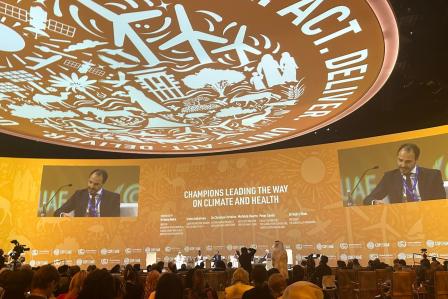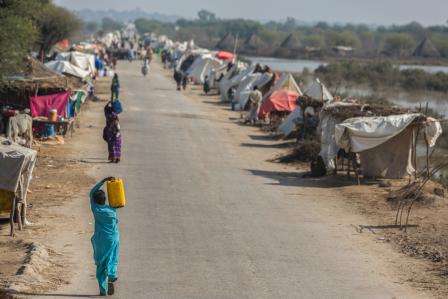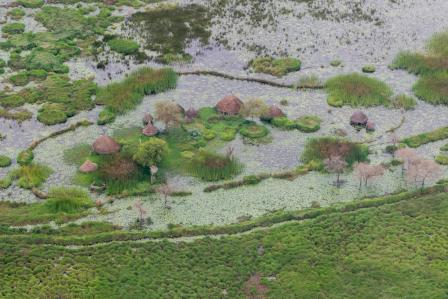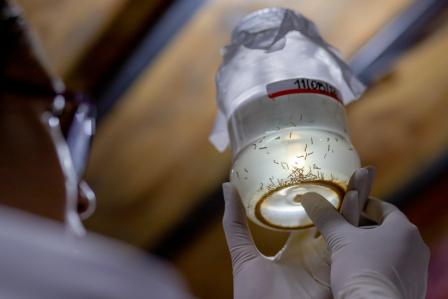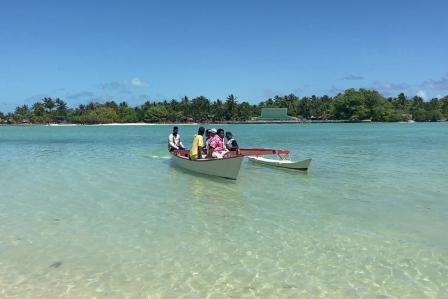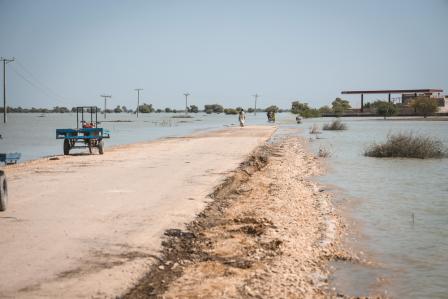Doctors Without Borders commits to reduce carbon emissions to help safeguard the health of the most vulnerable
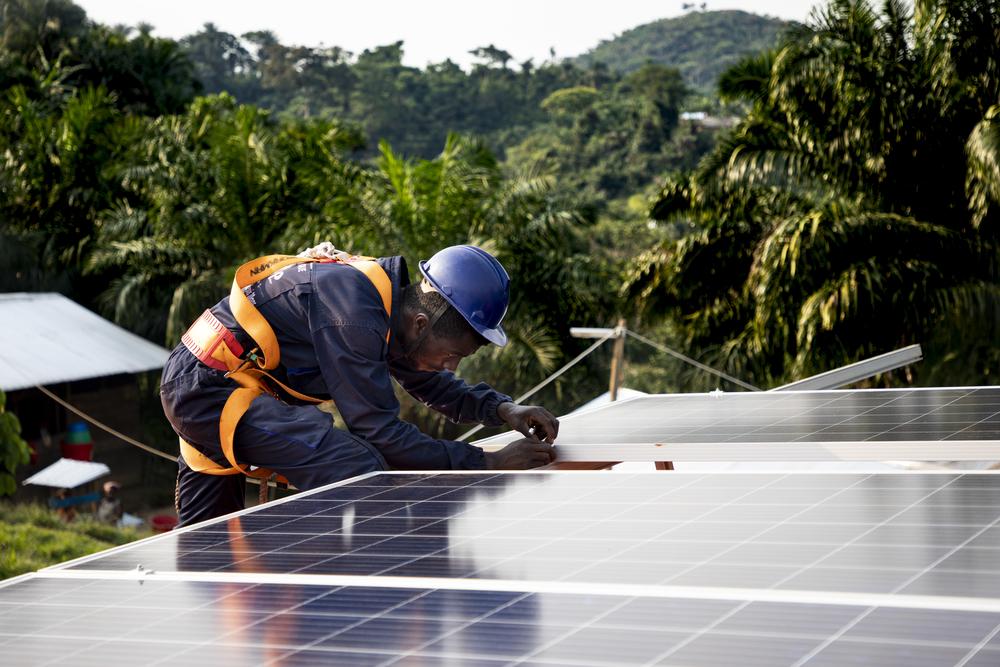
Doctors Without Borders has settled a solar panel system at the General Hospital of Kigulube in Sud Kivu to give autonomy to the health structure for the next 20 years. Democratic Republic of Congo, 2019. © Pablo Garrigos/MSF
The climate emergency is a threat to the future of our planet and the health and well-being of people around the world. The communities we assist are already experiencing the consequences of climate change, and we know that health and humanitarian crises will increase in scale and severity as the climate crisis accelerates. Urgent action must be taken now to prevent more human suffering and respond to impacts.
Our commitment
Recognising our own contribution to the global problem of carbon emissions and human-caused environmental disruption, we have pledged to reduce our emissions by at least 50 per cent compared to 2019 levels by 2030. With this target, we aim to chart a firm trajectory towards decarbonisation, aligning Doctors Without Borders with the goals of the Paris Agreement on climate to limit global warming below two degrees. The international Doctors Without Borders movement has unanimously agreed to this ambitious target and to report on the progress towards meeting it.
“Human health will be increasingly damaged by the negative consequences of the climate emergency,” says Dr Christos Christou, Doctors Without Borders International President. “It is not enough to respond to health problems when they arise. We have to do our part to prevent them from happening in the first place. Failing to act now would mean breaking our medical and ethical obligations towards patients and communities.”
Assessments to establish Doctors Without Borders' 2019 carbon footprint are underway, but there is already certainty that our organisation will have to continue to adapt and address issues related to the transport of people, supply, construction, energy and waste management.
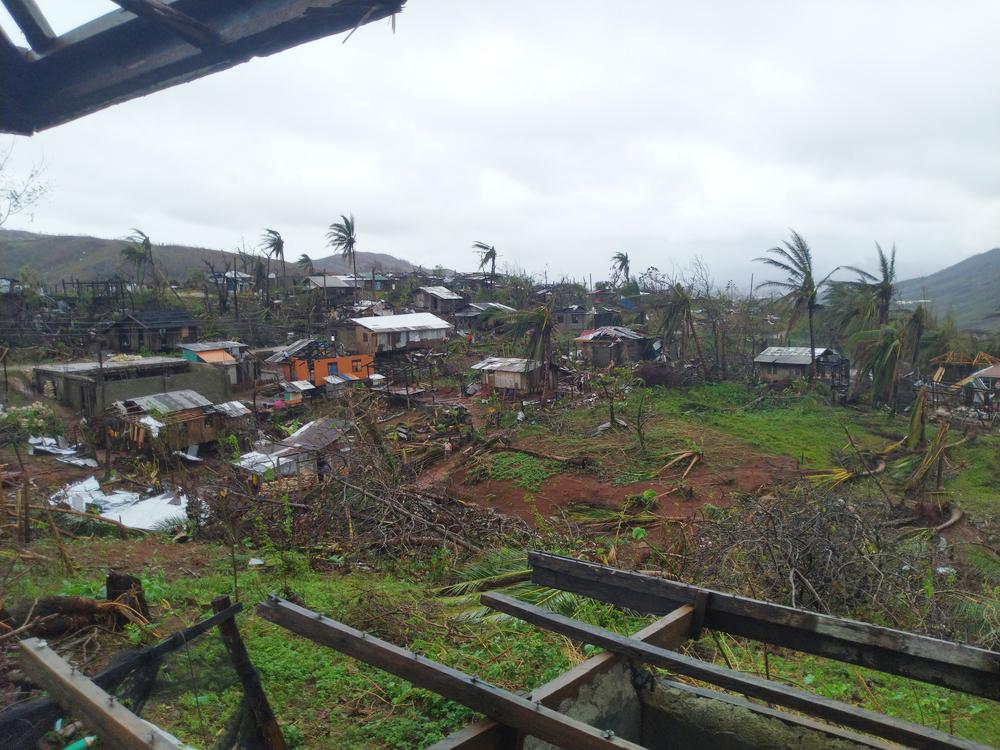
Dinagat Islands after Typhoon Rai (Odette) swept across the area in December 2021. Phillipines, 2021. © MSF/Chenery Lim
The climate crisis hits people in the most vulnerable situations the hardest
In many Doctors Without Borders project locations, our medical humanitarian teams are responding to situations that are linked to the changing environment. This includes increasing numbers of people with infectious diseases such as malaria, dengue fever and cholera, as a result of changing rainfall and temperature patterns. There are also increasing cases of zoonotic diseases (transmitted from animals to humans) due to rising pressure on the environment; and more frequent extreme weather events, such as cyclones, hurricanes and droughts, which can contribute to malnutrition. In many places where we work today, our teams see people with multiple health needs resulting from frequent epidemics, food insecurity, conflict and displacement, which are all exacerbated by the climate emergency.
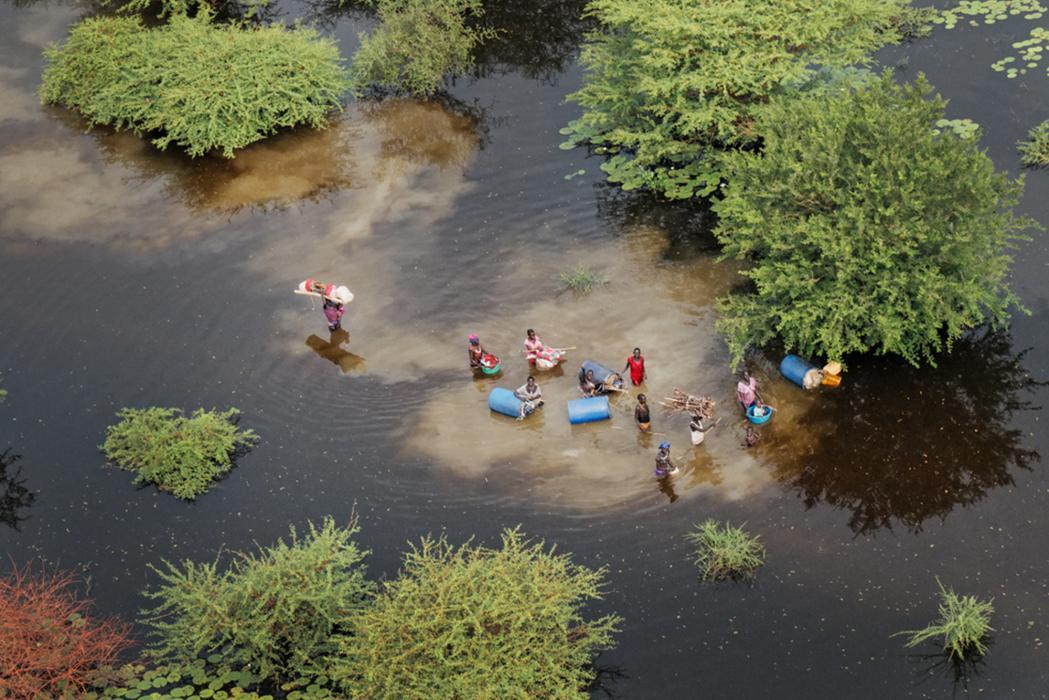
Families heading to dry land in Bentiu. 835,000 people have been directly affected by the flooding. South Sudan, 2021. © Sean Sutton
Urgency to act
Building on Doctors Without Borders' 2020 Environmental Pact, we recognise the need to make real and immediate changes in order to help curb the health impacts of climate change. This is why we are pledging to drastically reduce our emissions in this decade and why we are joining the nearly 200 humanitarian organisations who have signed the Climate and Environment Charter for Humanitarian Organizations.
As an emergency medical organisation, our priority will always be to provide rapid assistance to people in some of the world’s most remote places, but we must find a way to do this while minimising our environmental footprint. Within Doctors Without Borders, across the humanitarian sector and in the whole of society, we must change how we operate. This will not be easy, but will only become more necessary as climate change increasingly exacerbates humanitarian emergencies.
Decarbonising the way we implement and support our medical emergency projects in over 70 countries is not a small task. But we are determined to get there and we are working from all angles to find solutions. If we want to spare future generations from more suffering and disasters, we all need to take responsibility. The climate crisis is ultimately a health crisis and curbing emissions is now part of our humanitarian action.Dr Christos Christou, Int'l President
